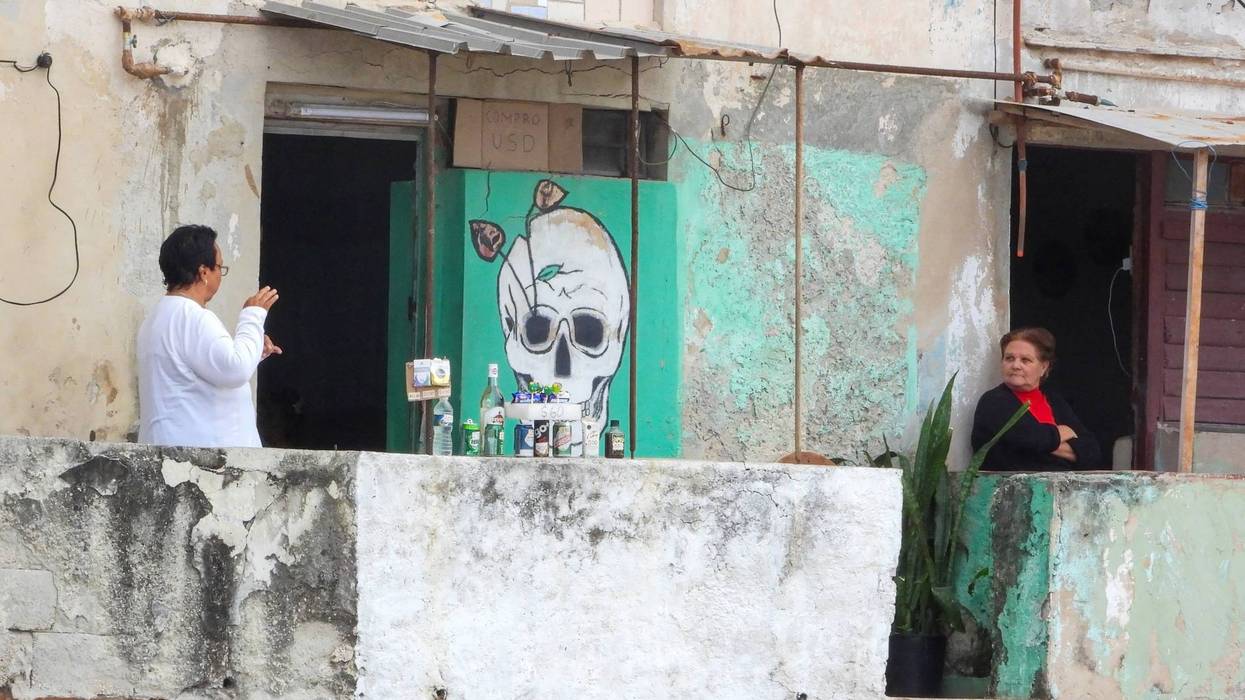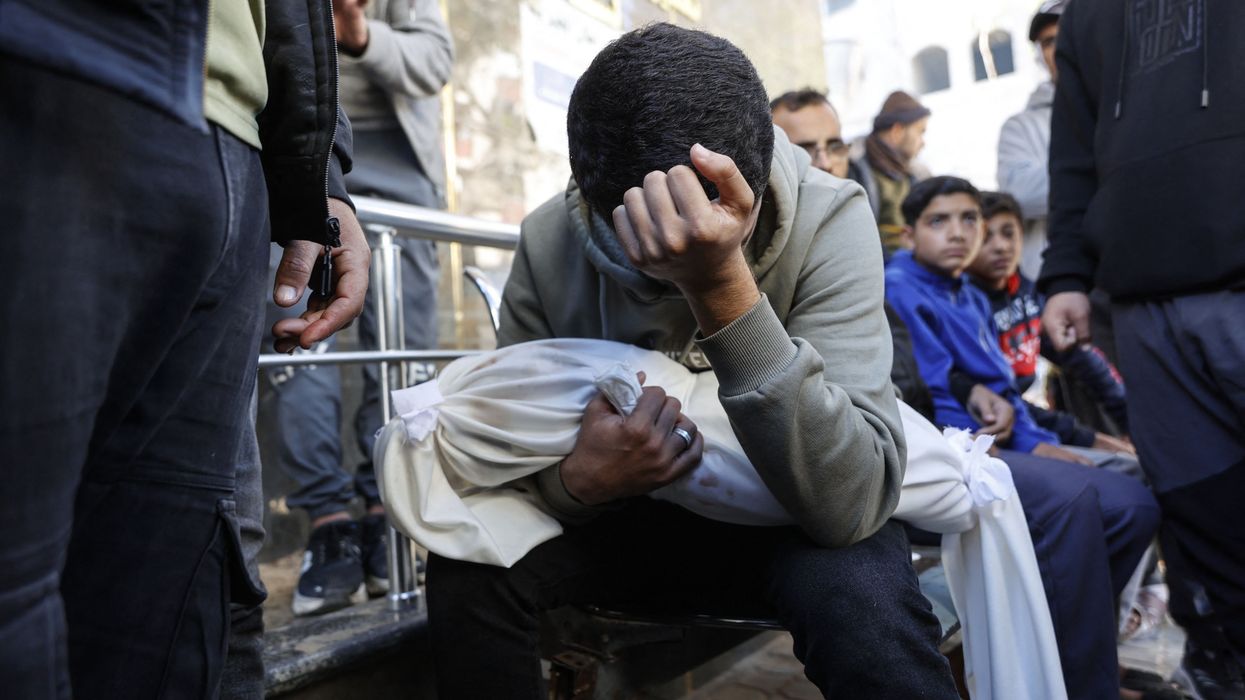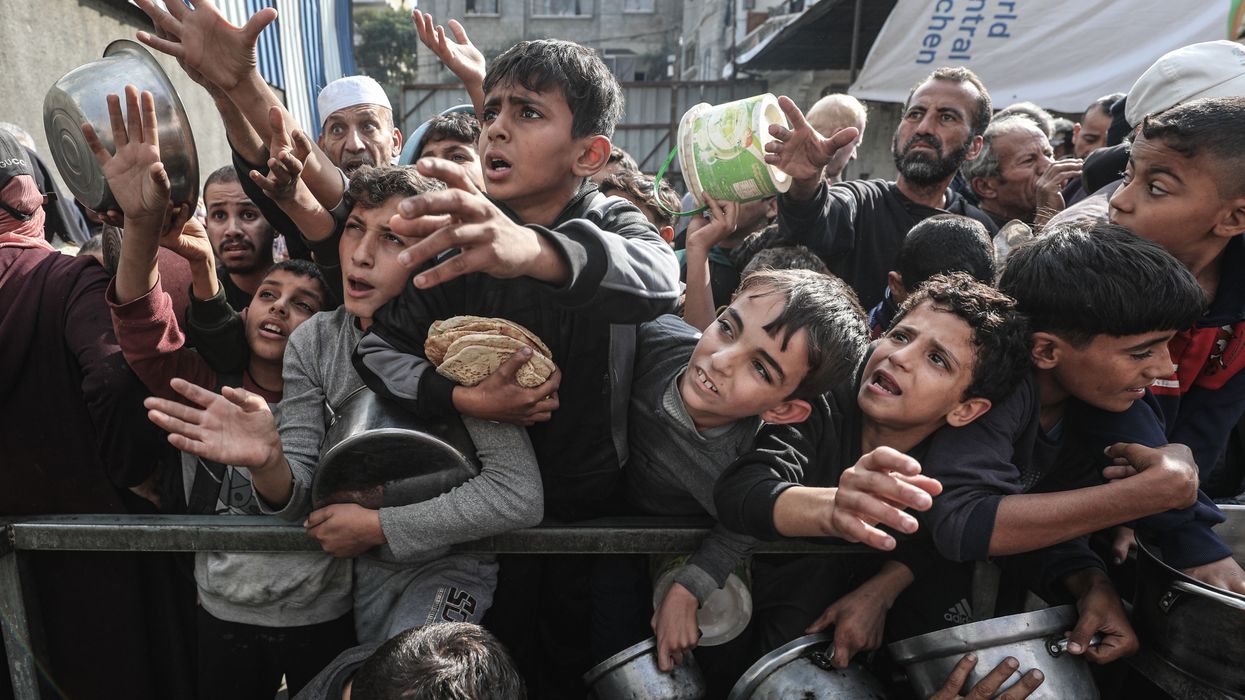How the US Weaponizes Starvation and Aid in Gaza and Cuba
In both Cuba and Palestine, the United States is deploying its barbaric methods of producing mass suffering in order to bring about political and economic submission.
Last week, the US government announced it would be sending $6 million in aid to Cuba, on top of the $3 million it sent in January after Hurricane Melissa. This aid package might appear contrary to the significant escalation of the 66-year-long US criminal blockade, which has expanded to an all-out fuel blockade since December, with attacks on Venezuela, but it is in fact a core tenet of it.
This maneuver seeks to exploit the US-manufactured energy and fuel crisis to bolster opposition groups, substantiate propaganda against the Cuban government and revolution, and force the island into total dependency and submission to the United States. This frankly genocidal strategy closely mirrors that of the US and Israeli “Gaza Humanitarian Foundation,” and the weaponization of starvation and aid for colonial and imperialist ends. In both Cuba and Gaza, this is a deliberate strategy by the US to make people suffer from its actions, then place blame on the governing authority to justify regime change.
In November of last year, the US first announced an aid package to Cuba in response to Hurricane Melissa. While the hurricane hit the east of the island with force, Cuba did not suffer mass casualties and crisis because of the people-first policies of the Cuban government, which continues to distribute resources and prevent casualties from natural disasters, despite US suffocation.
Hurricane Melissa killed over 54 people in Jamaica, at least 43 people in Haiti, four in the Dominican Republic, yet only one person in Cuba. The success of the Cuban government’s response is not only totally ignored by the US organizations, but also used to justify operations and propaganda. For instance, the Archdiocese of Miami said about its aid distribution: “Dozens were killed, mostly in Jamaica and Haiti, but Cuba’s weakening economic situation prompted action from a small group of donors.” Surely, when a country’s response to a natural disaster is to successfully evacuate 735,000 people, prevent a major death toll, and prioritize people’s survival, it is worthy of praise. Of course, this would be in total opposition to the US propaganda line that Cuba is a “failed state.”
In Cuba and Palestine, the US is manufacturing a crisis in order to push blame onto the governments that the imperialist power seeks to topple.
When Hurricane Katrina hit the US in 2005, Cuba offered a medical brigade of 1,586 doctors and 37 tons of medical supplies. The US refused outright. The hurricane and lack of response led to the deaths of over 1,800 people, many due to a lack of medical assistance and supplies, some of which Cuba could have provided, and 1.5 million people were displaced—many have never returned. The US government was happy to let people die rather than to accept the unconditional help of a Cuban medical brigade, which underscores its willingness to sacrifice its own population to pursue its aggression against Cuba. The stark difference between the US and Cuba in responding to natural disasters is at its core the polarity between a war economy based on extraction and profit, and a peace economy based on solidarity and common well-being.
Siege on Cuba, Siege on Gaza
The same genocidal motivations for the US-Israeli siege on Gaza have been imposed to isolate and suffocate Cuba. The US has banned the entry of goods into Cuba, imposed a total blockade on oil, and increased sanctions, which cause billions of dollars in losses each year, which is impoverishing the country. While it suffocates the infrastructure of even and efficient food distribution in Cuba, the US aid is being given only to the Catholic Church and US-backed NGOs, specifically to bypass distribution through the state. This is eerily consistent with the US and Israel’s horrific and deadly “Gaza Humanitarian Foundation (GHF).” In Gaza, they laid a total barbaric siege on Gaza, refused the entry of any goods and aid, and banned international aid groups in order to justify US mercenaries providing meager amounts of aid between firing bullets. The US and Israel massacred at least 2,603 people and wounded 19,034 more at GHF distribution points. There was absolutely no accountability for or action against these barbaric killing fields.
In both Palestine and Cuba, the US is overtly and brazenly violating the humanitarian principle of working with governments in affected countries. It is using the same propaganda lines to do so. For Cuba, the US says it is “bypassing regime interference, and ensuring transparency and accountability” and that the aid is “part of a broader effort to stand with the Cuban people as they seek a better future.” For Gaza, the US says it is “the only viable way to get aid into Gaza without empowering Hamas” and “is a results-focused alternative to a broken aid system.”
In both places, the US openly claims it is undermining governments and organizations that it claims “steal” the aid. This accusation is a confession. Israeli occupation forces (IOF) set on fire, burnt, and buried more than 1,000 trucks of aid in Gaza as Israel manufactured a famine that killed at least 10,000 people, and for which the United Nations described as the “failure of humanity itself.” An IOF reservist said he “accompanied aid convoys supplying a militia in Rafah” and Israeli security added “closed boxes with unknown contents” to justify lies that Hamas was weaponizing aid. Israel also funded and coordinated militia groups in Gaza to loot aid, and protected Israeli settlers looting and destroying aid from trucks. Not to mention the many videos of IOF soldiers gleefully and jeeringly consuming this food aid. All of these actions, with the brazen refusal to allow passage for thousands of aid trucks in Gaza, provided the conditions to justify the “Gaza Humanitarian Foundation” and its killing fields.
Similarly, it is the United States that is stopping goods from entering Cuba. Since 1962, the US has imposed a blockade that bans all trade and economic activity with Cuba. This is banned outright in the US with severe consequences, and spans the entire world, as the US imposes secondary sanctions, tariffs, and other punitive measures against any country, organization, company, or individual that does not comply with its blockade. In recent weeks and months, this has been tightened further. No oil has entered Cuba since December, and the government has rolled out a plan to ration limited energy for only the most urgent uses, such as hospitals, schools, and food. Cuba can no longer fuel airplanes, which may halt all air travel. The US, on one hand, is threatening tariffs and sanctions on any country that tries to trade oil and goods with Cuba, and on the other, it is pushing propaganda that the country is not able to feed and provide energy for its people. In Cuba and Palestine, the US is manufacturing a crisis in order to push blame onto the governments that the imperialist power seeks to topple.
Made in Israel and Miami
The aid is also political at its source. All supplies through the “Gaza Humanitarian Foundation” were from Israeli suppliers, directly creating profit for Israeli venture capitalists, tech investors, and other occupation personnel like Michael Eisenberg, Liran Tancman, and Yotam HaCohen. It also funneled public funds into private and shady mercenary companies, UG Solutions and Safe Reach Solutions. This strategy utilizes aid as a weapon of colonial regime-change efforts, with the US aiming to install its proxies firmly in power in Cuba and Palestine, in opposition to the interests and will of the people.
For those of us invested in a better world based on humanity, it is imperative we stand steadfast with Palestinians and Cubans as they struggle against the most barbarous face of the US empire.
The US aid supplies to Cuba originate in Miami, Florida, long known as the site of the most vocal and brazen pro-US, fascist sentiments in the Cuban diaspora. The aid is being distributed by the Catholic Church and Caritas, a US-funded NGO set up in 1991 during the ‘Special Period’ in Cuba, which has funded regime-change operations on the island. Catholic Relief Services, one of the three organizations in Caritas North America, receives over half of its funding ($1.5 billion) directly from the US government. The other organization involved is the Catholic Charities of the Archdiocese of Miami, which was the architect of the covert CIA “Operation Pedro Pan,” where over 14,000 Cuban children were taken from their homes to the US in the years after the revolution. Also included on the board of the charity is Justice of the Supreme Court of Florida, John Couriel. The headline $9 million figure of aid to Cuba is being absorbed by organizations like this. In fact, in 2024, over 72% of all US aid to Cuba went to US organizations. This must pose the urgent question of how much of this aid is a way to direct resources to opposition groups in Cuba under the guise of sending food.
Gathering Intelligence
The strategy of deploying aid also pertains to a significant element of covert surveillance and intelligence. At the end of January last year, the US deployed around 100 mercenaries, mostly former US Special Forces soldiers, to patrol Gaza and set up the deadly “aid hubs.” US soldiers shot and killed starving Palestinians seeking aid while cheering and ordering Domino’s Pizza. These sites were death traps, used to lure Palestinians into an area where they were surveiled and shot at. People risked their lives to receive a meager amount of aid that was often rotten. It has been revealed that a significant element of this operation was surveillance. A UG Solutions contractor revealed that American and Israeli soldier-spies are using facial recognition software “on top of real-time footage of distribution sites” from CCTV and aerial surveillance footage. This was beyond merely a method of massacre, but of surveillance through the proxy of “aid.” The US and Israel confirmed there was surveillance after specifically recruiting intelligence operatives.
Similarly, the State Department announced that US government officials have been “making sure that the regime does not take the assistance, divert it, try to politicize it.” They went on to explain that “we have been watching” and “speaking with everyday Cubans…understanding the challenges they have been facing, both in the wake of the hurricane and due to the broader humanitarian crisis in Cuba.” This is worrying, as it is clear the US is using this as an opportunity, in tandem with NGO networks, to collect intelligence and push pro-US propaganda and lies across the country under the guise of “aid.”
In both Cuba and Palestine, the United States is deploying its barbaric methods of producing mass suffering in order to bring about political and economic submission. The tactics being used in distributing aid in Cuba now are a softer model of the killing fields in Gaza that seek to force the entire population into submission and occupy the entirety of Palestine.
Beyond this playbook, it is important to recognize the historic connections between Palestine and Cuba, particularly as they resist the violence of the US empire that seeks to starve them into submission. Cuba was one of 13 countries to vote against the UN partition of Palestine in 1947; in the months after the triumph of the revolution, Che Guevara and Raúl Castro traveled to Gaza; they were one of the first to recognize the Palestinian Liberation Organization in 1964; they severed all ties with Israel in 1973; and labelled Israel’s action a genocide in 1979. Since 1982, Cuba has been providing education for Palestinian students in Cuba; it helped to get Palestine observer status at the United Nations in 2012; it supported South Africa’s genocide case at the International Court of Justice in 2024; and has been one of Palestine’s staunchest supporters diplomatically and materially.
This historic friendship and solidarity are what the United States fears. This is why it is hellbent on destroying the Cuban Revolution and its continued ability to provide for its people, while refusing to let US companies pillage and extract from the island and its inhabitants. For those of us invested in a better world based on humanity, it is imperative we stand steadfast with Palestinians and Cubans as they struggle against the most barbarous face of the US empire. The situation is urgent and requires action. Like Fidel Castro said to the UN in 1979: “If we do not resolve today’s injustices and inequalities peacefully and wisely, the future will be apocalyptic.”


